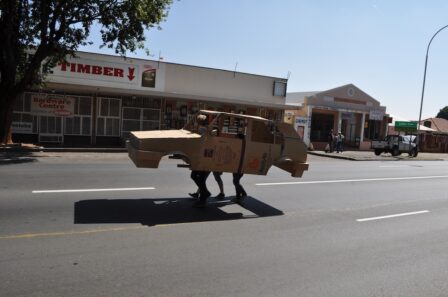Susanne Kudielka & Kaspar Wimberley
Susanne Kudielka (1980) & Kaspar Wimberley (1980), Germany
Period of residency: May 2015
Susanne Kudielka and Kaspar Wimberley are usually referred to as artists, producers, curators and researchers, specialising in site responsive and inter-disciplinary ‘public-art’ practices. Projects have been described as an invitation to take part in something extra-ordinary and a catalyst for dialogue and exchange. The common thread that runs through their work is an attempt to sensitise people to existing social, political or cultural conditions, exposing, negating or interrogating the hierarchy of the moment.
They work with museums, art festivals, art institutions, universities, local authorities, NGOs, schools and as independent producers. In Barcelona they will be continuing a research project exploring notions and perceptions of security that began in Johannesburg and Luxembourg in 2013.
Their work begins with a process of observation and contextual research that analyses and eventually responds to contemporary narratives, social structures and patterns of communication that can be found at any given site. Observations and interactions are placed alongside contextual research, bringing together specialists and enthusiasts from a variety of different disciplines and occupations. Generic questions lead to more specific questions as the investigation progresses.
In 2011 they founded ARTTOURS in Stuttgart, a three-year programme of city tours and experiments, conceived by a group of local and international artists to explore new ways of interacting with an urban environment, while responding to the politics and potential of the tourism experience. ARTTOURS concentrated on sensual, intimate and unpredictable encounters with the city and its inhabitants. The traditional expectations surrounding a ‘city tour’ were playfully subverted; the consumer became the service provider, visitors became guides, the foreign became the familiar, the mundane became the attraction, and destinations became places of departure. The tourist was an active participant, rather than a passive recipient: an explorer, researcher, detective, cartographer, collector, tracker and collaborator.
kaspar(at)treacletheatre.co.uk
http://www.treacletheatre.co.uk/portfolio/

